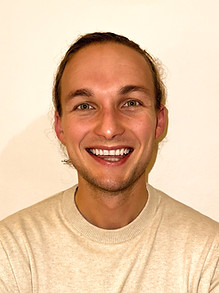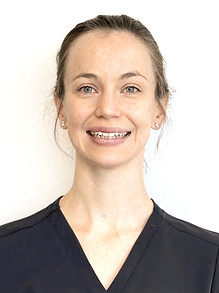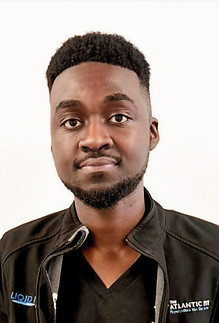

Our Impact
As renowned Ophthalmologists with decades of experience and a keen interest in academics, research and philanthropy, we have identified a need for increased research and training in eye conditions that have a high impact on the lives of South Africans, and we want to achieve that.
Our foundation is dedicated to promoting high-quality, contextually relevant research in ophthalmology, with a focus on eye diseases that have a profound impact on the quality of life of South Africans.
Our founding members are seasoned researchers with internationally recognized publications and decades of collective experience in advancing the field of eye health. Through the foundation, we aim to channel this expertise toward research that matters — research that directly responds to the needs of our people.
By forming strategic partnerships with public health institutions, we ensure that our studies reflect the full diversity of our population and contribute to solutions that are not only effective but equitable.
Our research team have authored and contributed to several published articles over the years, many of which include the below:





SUPPORTING EDUCATION AND TRAINING IN EYE HEALTH
Sponsorships: Investing in Future Leaders
South Africa is grappling with a critical shortage of ophthalmologists—a crisis rooted not in a lack of talent, but in the systemic underfunding of medical specialisation. Despite years of rigorous academic and clinical training, many qualified doctors are left unable to pursue further specialization in ophthalmology due to severe budgetary constraints. In some cases, those who do persist are expected to train without remuneration, a condition that raises profound ethical concerns given their long-term dedication and personal sacrifices.
Ophthalmic care in South Africa stands on precarious ground. Orbis reports that there are only six ophthalmologists per million people in the country—a ratio grossly insufficient to meet the growing demand. Approximately 950,000 South Africans live with moderate to severe vision loss, and an estimated 300,000 are affected by complete blindness. Compounding this crisis is the fact that most practicing ophthalmologists work in the private sector, where conditions are more sustainable. The public sector, in contrast, offers disproportionately low wages, leaving rural and underserved communities without access to critical eye care services.
In 2019, then-Minister of Health Dr Zweli Mkhize acknowledged that health sector budgets had not increased in real terms over the previous decade (Towett, 2019). Instead of doing adjusting accordingly, implementation of the National Health Insurance (NHI) scheme was proposed, and while well-intentioned, it has raised fears of exacerbating the brain drain, as private healthcare professionals consider emigration in response to increasing regulation and diminishing incentives.
This gap in human resources offers an opportunity—not only for intervention but for transformation. Our approach is simple: rather than reinventing healthcare delivery, we choose to support and strengthen the existing public framework. We focus on enabling the training of qualified ophthalmologists who will directly contribute to the public health system, ensuring equitable access to eye care for all South Africans.
We are proud to sponsor Dr Douglas Heale, a promising young physician currently in his second year of ophthalmology specialization at the University of Cape Town. A cum laude graduate from Stellenbosch University and recipient of the Best Student in Ophthalmology award, Dr Heale embodies both clinical excellence and an unwavering commitment to service.
His journey—from the emergency wards of Khayelitsha to outreach programs along the Swaziland border—demonstrates not only competence but compassion. With postgraduate diplomas in Paediatrics, Emergency Medicine, and HIV Medicine, Dr Heale is a well-rounded, community-focused clinician poised to make a lasting impact in the field of eye care.
But Doug’s story is only the beginning. With sustained support, we can invest in many more individuals like him—future leaders who will strengthen South Africa’s ophthalmic workforce and ensure that no community is left in the dark.
Training and Capacity Building
Our foundation is also deeply invested in hands-on training for both medical professionals and students. Through internships and observational opportunities hosted at the Atlantic Eye Specialist Centre — a facility renowned for its cutting-edge technology and multidisciplinary expertise — trainees gain invaluable real-world experience in diagnosing and treating a wide range of eye conditions.
We aspire to become an HPCSA-accredited training centre for Medical Officers (MOs), ensuring these practitioners meet their diploma requirements through high-impact, practical learning. One such MO, Dr. Helené Sonnekus, has already begun her journey with us and shows outstanding promise in the field.
International Collaboration
Our training initiatives also extend beyond borders. We are currently mentoring Blessed Bello, a third-year Zimbabwean optometry student from CHARUSAT University in India. Blessed chose to complete his internship at Atlantic Eye Centre to deepen his exposure to ophthalmology and elevate his academic training through global experience.
In addition to clinical exposure, Blessed is undertaking the Ophthalmic Assistant Level One Course through the Pretoria Eye Institute, supervised by Professor Mustak. His ongoing research project, supported by our team, is a testament to our commitment to nurturing future leaders in eye health — wherever they may come from.
These stories are a glimpse into what’s possible when expertise meets opportunity. With the sustained support of our donors, we aim to expand these programs to uplift more committed and passionate individuals.

IMPROVING EYE CARE SERVICE DELIVERY IN SOUTH AFRICA
Far too many South Africans live with preventable or treatable eye conditions—not because the solutions do not exist, but because they remain out of reach. Limited access to timely, quality eye care continues to rob individuals of their vision, independence, and all too often, their livelihoods. Our foundation exists to bridge this gap through targeted service delivery, strategic public-private partnerships, and sustained community outreach.
According to the World Health Organization (WHO), an estimated 2.2 billion people globally live with impaired vision, and at least 1 billion of these cases could have been prevented or treated. In response to this urgent reality, South Africa joined the WHO’s Global initiative for the elimination of avoidable blindness in 2000, pledging to perform 2,000 cataract surgeries per million people annually. Given South Africa’s current population of 63 million (Stats SA, 2024), this translates to a national target of 126,000 cataract surgeries each year. Yet in 2019 to 2020, the public sector carried out fewer than 60,000 surgeries—less than half of what is required.
Cataracts remain the leading cause of blindness in the country, with approximately 240,000 South Africans currently blind or partially blind due to untreated cataracts (OSSA). The burden is growing. South Africa’s ageing population and rising prevalence of diabetes—two major risk factors for vision loss—are intensifying the demand for specialised eye care, particularly for cataract and diabetic retinal diseases. For many, public hospitals and clinics are their only hope of receiving treatment.
Yet in these public institutions, systemic bottlenecks persist. Patients are typically screened at their initial visit but not formally diagnosed. They are then placed in a queue, often waiting 12 to 24 months for a follow-up appointment, after which they may finally be added to a surgical waitlist. In many cases, it takes two to three years from the first point of contact to surgery. Tragically, for many patients, this delay proves irreversible—by the time they are seen, they have already lost their sight.
This is precisely where we intervene. Our approach is not to replace the public sector but to support and strengthen it. In partnership with the Radiance Foundation, we work to reduce surgical backlogs by identifying patients already on government waitlists and performing cataract surgeries that would otherwise be delayed. Every operation we conduct not only restores vision to a patient in need—it also shortens the wait for others, relieving pressure on the public health system.
By supporting our work, you are doing more than funding medical care. You are helping restore sight, dignity, and autonomy to thousands of individuals. You are transforming lives—one surgery, one person, one future at a time.






















